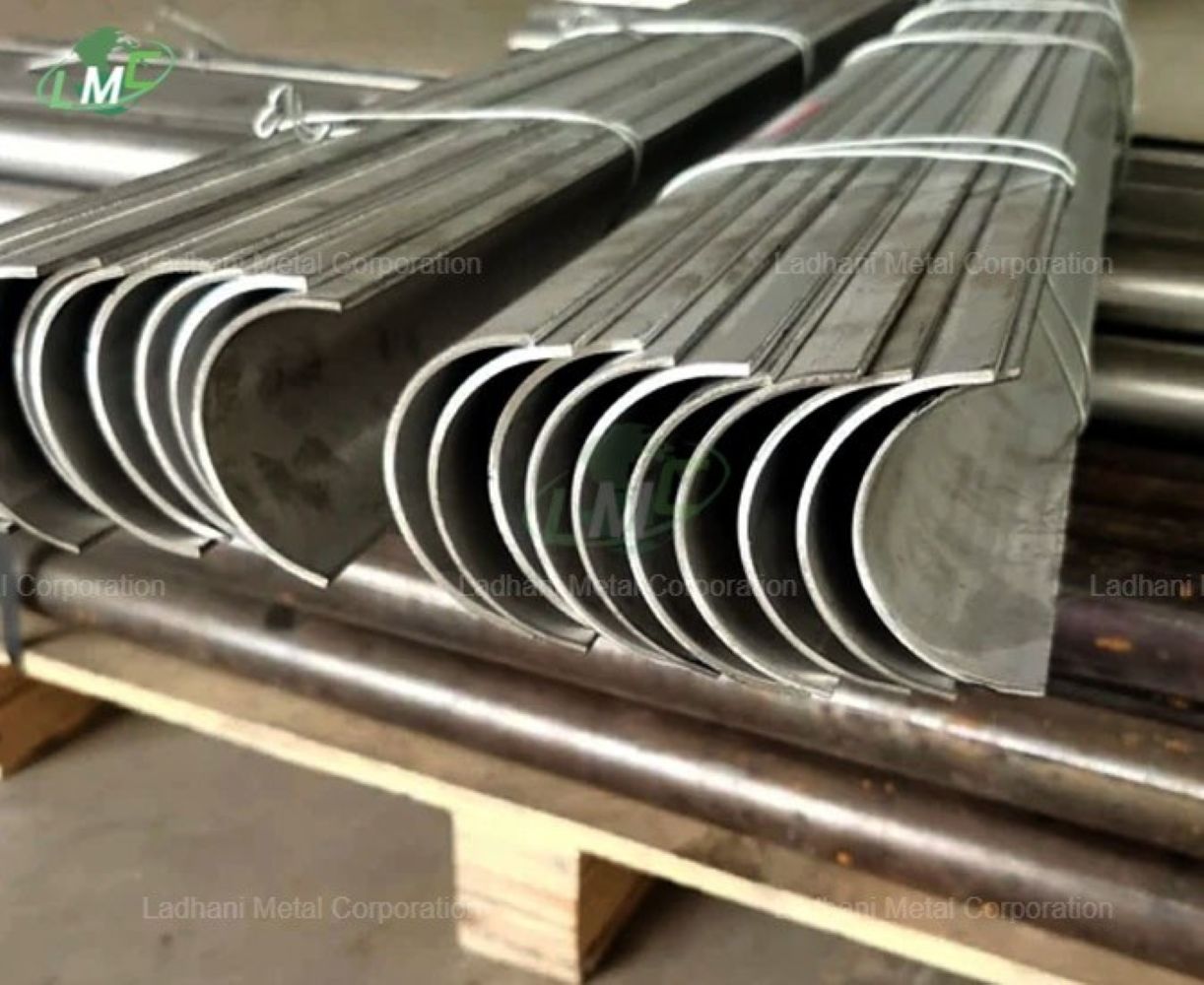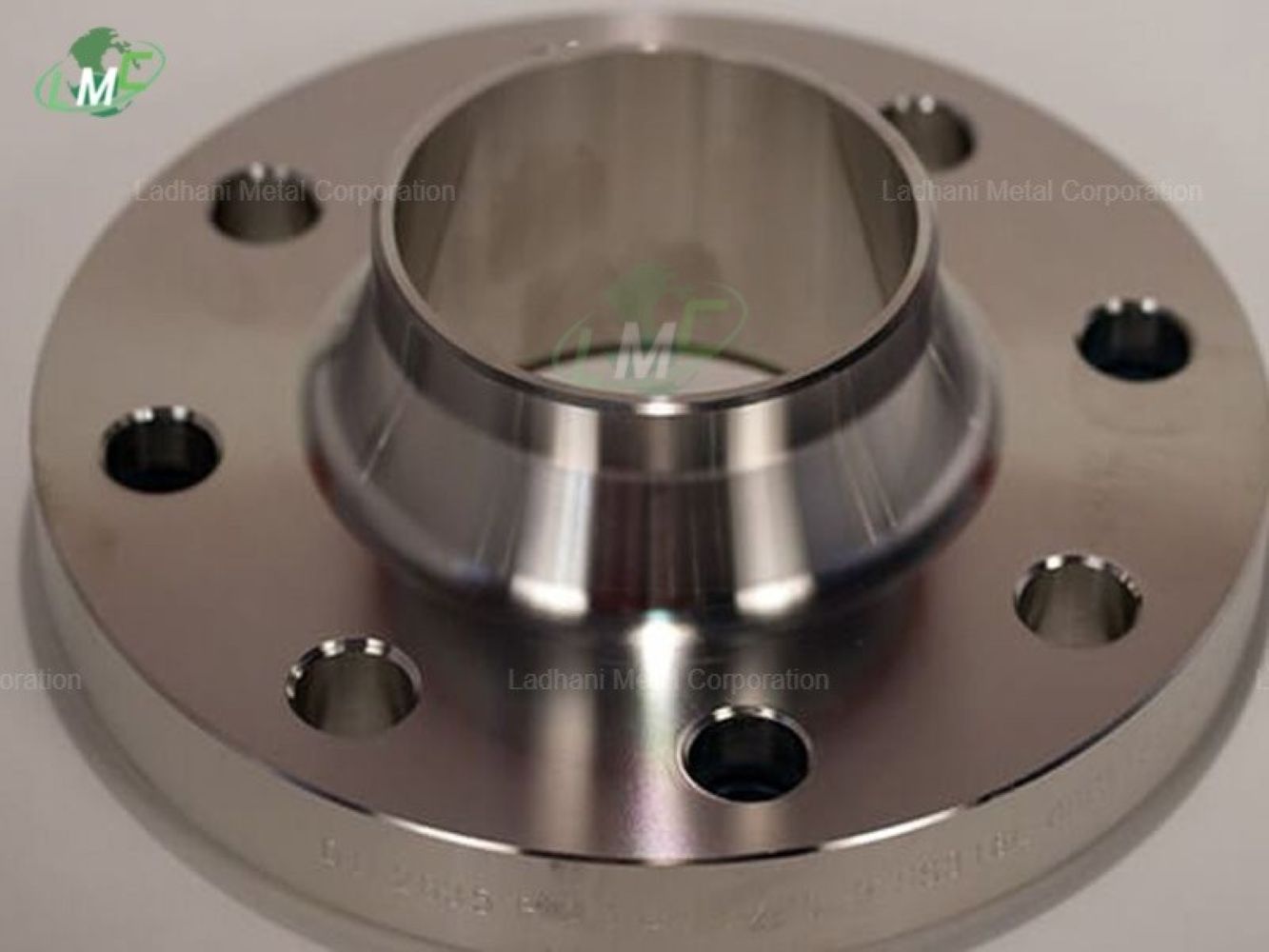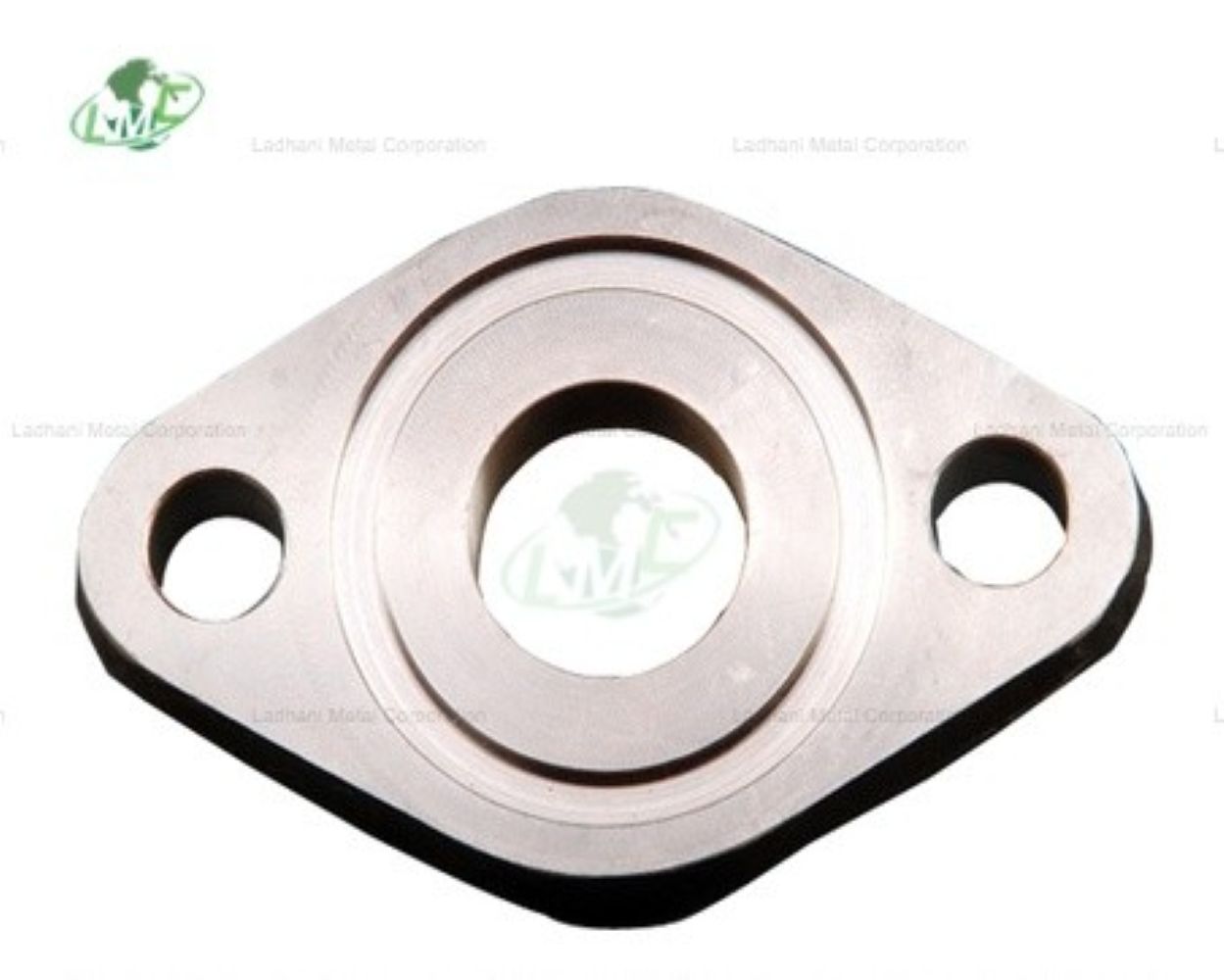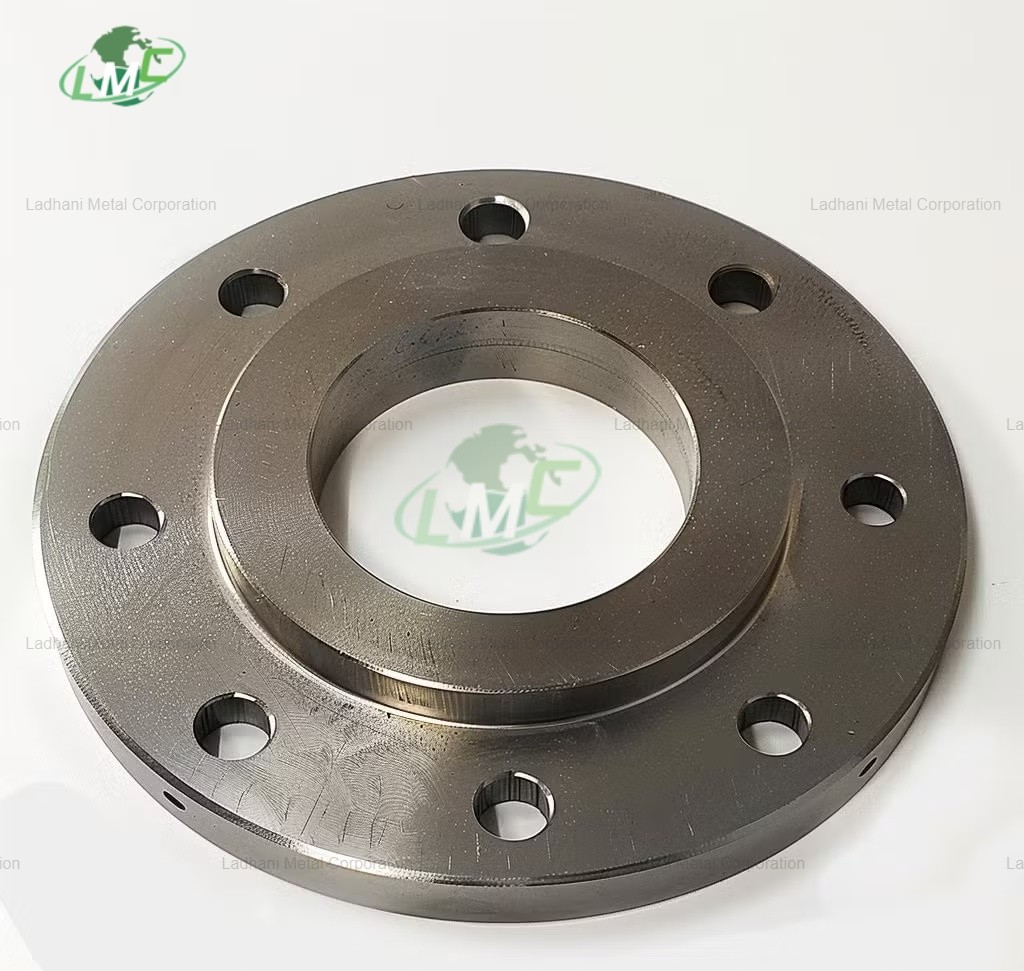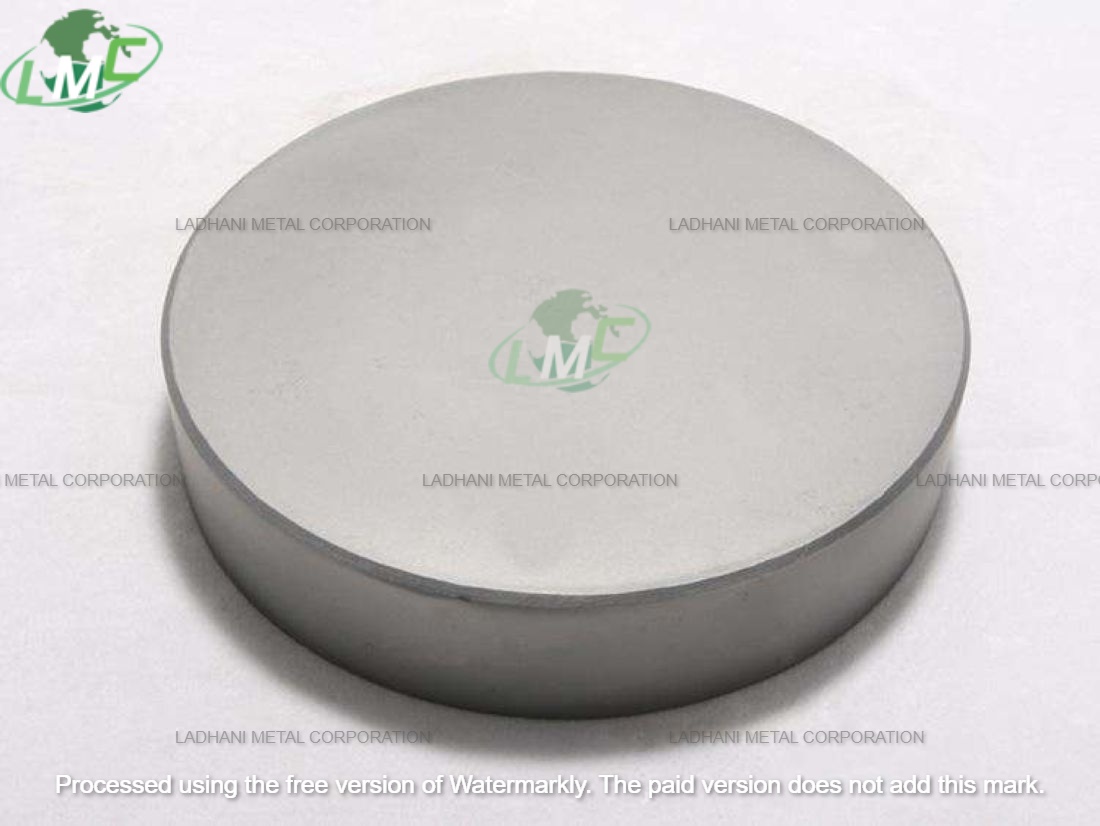Half Round Tube Shield Half Round Tube Shields by Ladhani Metal Corporation are precision-engineered components used to protect tubes in boilers, heat exchangers, and high-temperature process systems. Designed to reduce tube erosion, oxidation, and thermal fatigue, these shields play a critical role in maintaining the longevity and reliability of industrial equipment in thermally aggressive and corrosive environments. Cr23Ni13 Half Round Tube Shield The Cr23Ni13 Half Round Tube Shield is a semi-cylindrical protective sleeve manufactured from high-alloy stainless steel containing approximately 23% chromium and 13% nickel. This alloy provides excellent resistance to high-temperature oxidation, scaling, and corrosion, particularly in systems operating up to 1000°C. With an austenitic microstructure, Cr23Ni13 exhibits good strength, ductility, and resistance to thermal shock, making it ideal for use in heat-intensive industrial processes. The half-round shape allows for easy installation over existing tubes, creating a strong and secure shield against gas flow, flame impingement, and particulate erosion. Chemical Composition of Cr23Ni13 – Austenitic Heat-Resistant Stainless Steel • Carbon (C): ≤ 0.12% • Silicon (Si): ≤ 1.50% • Manganese (Mn): ≤ 2.00% • Phosphorus (P): ≤ 0.040% • Sulfur (S): ≤ 0.030% • Chromium (Cr): 22.0 – 24.0% • Nickel (Ni): 12.0 – 14.0% • Iron (Fe): Balance Uses • Superheater and Reheater Tube Protection – Prevents scaling and oxidation on boiler tubes exposed to high flue gas temperatures in thermal power stations. • Furnace Tube Shielding – Shields radiant and convection tubes from flame impingement, heat distortion, and thermal fatigue in process furnaces. • Heat Exchanger Tubes – Offers external protection against erosion and scaling in petrochemical and refining systems operating with hot gases. • Power and Steam Generation Systems – Used to protect steam tubing from oxidation and surface wear in continuous service at elevated temperatures. • Industrial Kilns and Incinerators – Guards exposed piping in rotary kilns and combustion chambers against corrosive deposits and heat damage. Features • High-Temperature Resistance – Performs reliably in continuous service up to 1000°C, maintaining strength and dimensional stability. • Oxidation and Scaling Protection – Chromium-rich composition creates a protective oxide layer that resists corrosion in oxidizing environments. • Austenitic Microstructure – Provides good mechanical strength, thermal expansion resistance, and excellent ductility under heat cycling. • Precision Half-Round Form – Designed for fast, secure installation over round tubes using welding or clamping techniques. • Durable Construction – Withstands vibration, thermal shock, and erosive gas flow common in industrial boilers and furnaces. • Custom Manufacturing – Offered in various diameters, wall thicknesses, and lengths to match specific application demands. • Optional Finishes – Available in pickled, passivated, or bright annealed surface finishes based on environmental and operational needs. Applications • Thermal and Utility Boilers – Shields superheater and economizer tubes from high-temperature corrosion and ash erosion. • Petrochemical Plants – Used in process heaters and reactors where external tube surfaces are exposed to oxidizing or carburizing atmospheres. • Refineries – Protects tubes in fired heaters and reformers against oxidation and mechanical degradation. • Waste-to-Energy Facilities – Guards boiler tubes from hot flue gas erosion and acidic gas corrosion in incineration systems. • Metallurgical Furnaces – Applied in steel and non-ferrous heat treatment plants to prevent oxidation and scale accumulation. • Cement and Lime Plants – Protects gas ducting and tube banks in preheaters, coolers, and flue recovery systems from abrasive dust and heat exposure. Conclusion The Cr23Ni13 Half Round Tube Shield by Ladhani Metal Corporation offers a reliable and efficient solution for tube protection in high-temperature and oxidizing environments. Its austenitic stainless steel composition ensures superior oxidation resistance, structural integrity, and longevity under continuous thermal stress. Whether used in boilers, furnaces, or reformers, these shields effectively reduce downtime, maintenance costs, and the risk of unexpected tube failures. With flexible customization, quality-controlled fabrication, and proven material performance, Ladhani Metal Corporation remains a trusted supplier of advanced shielding solutions for critical industrial applications. For detailed specifications, customization requests, or to obtain a quote, please contact Ladhani Metal Corporation.
Send Message
